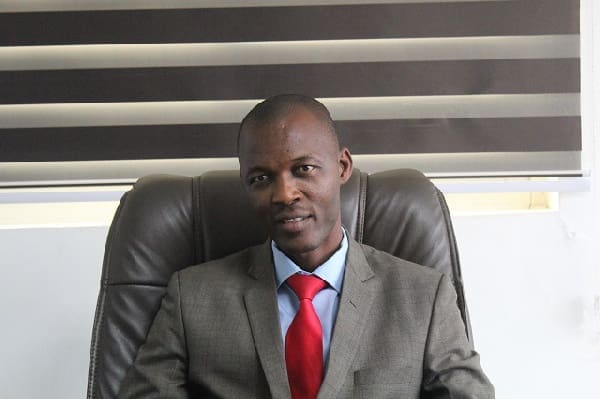Our Terms & Conditions | Our Privacy Policy
Ghana’s Brands Must Rediscover Cultural Storytelling Roots
William Yaw Ansah
Ghanaian brands risk losing their competitive edge by abandoning culturally-rooted storytelling in favor of foreign marketing models, according to a leading advertising executive who argues that authentic local narratives represent the key to both domestic success and global recognition.
William Yaw Ansah, CEO of Origin8, one of Ghana’s prominent marketing communications companies, warns that creative agencies and media houses are increasingly relying on international concepts while neglecting the storytelling traditions that have defined Ghanaian culture for generations.
“When we ignore our own stories, we lose the connection not only with our culture but also with our people,” Ansah said, highlighting how successful local brands demonstrate the power of culturally grounded identity in a competitive marketplace.
Companies like Kasapreko, Adonko, and Papaye exemplify this approach, using names rooted in Ghanaian culture that begin storytelling before any advertising campaign launches. These brands spark recognition, pride, and belonging among consumers who see their own identity reflected in the products they purchase.
Ansah advocates for brand storytelling that draws from distinctly Ghanaian elements including highlife rhythms, Ga street slang humor, and the communal energy of festivals like Homowo and Chale Wote. This cultural authenticity resonates with consumers who seek experiences reflecting their values and aspirations rather than simply purchasing products.
The perspective aligns with growing recognition that Ghana needs stronger national branding to compete globally. Recent analysis suggests that unlike short-term promotional campaigns, authentic brand identity forms the foundational lens through which others view Ghana and Ghanaians understand themselves.
Ghana’s creative industry faces increasing pressure to differentiate itself as digital marketing becomes more competitive. Industry observers note that agencies focusing on creative brand storytelling are gaining recognition for combining design, strategy, and digital campaigns to help businesses stand out in crowded markets.
The Origin8 CEO acknowledges that global brands like Apple, Nike, and Coca-Cola offer valuable strategic lessons but insists that Ghanaian companies achieve distinction by staying true to their cultural roots. Local humor, resilience, and traditions provide foundations for stories that connect domestically while resonating internationally.
This approach reflects broader discussions about Ghana’s development strategy. Marketing experts increasingly argue that branding and storytelling can package traditional foods, crafts, fashion, and cultural expressions for both local appreciation and global markets.
Origin8, established in 1998, has positioned itself as a thought leader in culturally-informed marketing strategy and digital transformation. The company describes itself as delivering innovative solutions that elevate brands through integrated marketing communications.
Ansah’s critique comes as Ghana’s advertising and marketing sector experiences significant growth, with numerous agencies competing for corporate clients including major telecommunications companies and financial institutions. However, the emphasis on foreign models may undermine the unique selling propositions that make Ghanaian brands memorable.
The CEO argues that effective brand storytelling requires understanding that Ghanaian consumers buy experiences that reflect their identity rather than just products. This insight suggests successful brands must speak consumers’ language through music, food, sports, and humor to achieve lasting impact.
The cultural storytelling approach gains relevance as Ghana positions itself as a regional hub for creativity and innovation. Recent initiatives aim to create ecosystems where ideas flow freely and creativity is monetized, supporting entrepreneurs and creators who draw from local traditions.
While global brands provide strategic inspiration, Ansah maintains that Ghana’s people, traditions, and everyday experiences must shape the heartbeat of local brand stories. This philosophy suggests that authentic cultural connection, rather than imitation of international models, offers the most promising path to both domestic success and global recognition.
The debate over cultural authenticity in marketing reflects broader questions about Ghana’s identity in an increasingly globalized economy. As local brands compete with international companies for consumer attention, those rooted in genuine Ghanaian storytelling traditions may possess sustainable competitive advantages that foreign models cannot replicate.
For Ghana’s creative industry, the challenge involves balancing international best practices with authentic local narratives that genuinely resonate with the cultural experiences and values of Ghanaian consumers.
Images are for reference only.Images and contents gathered automatic from google or 3rd party sources.All rights on the images and contents are with their legal original owners.



Comments are closed.